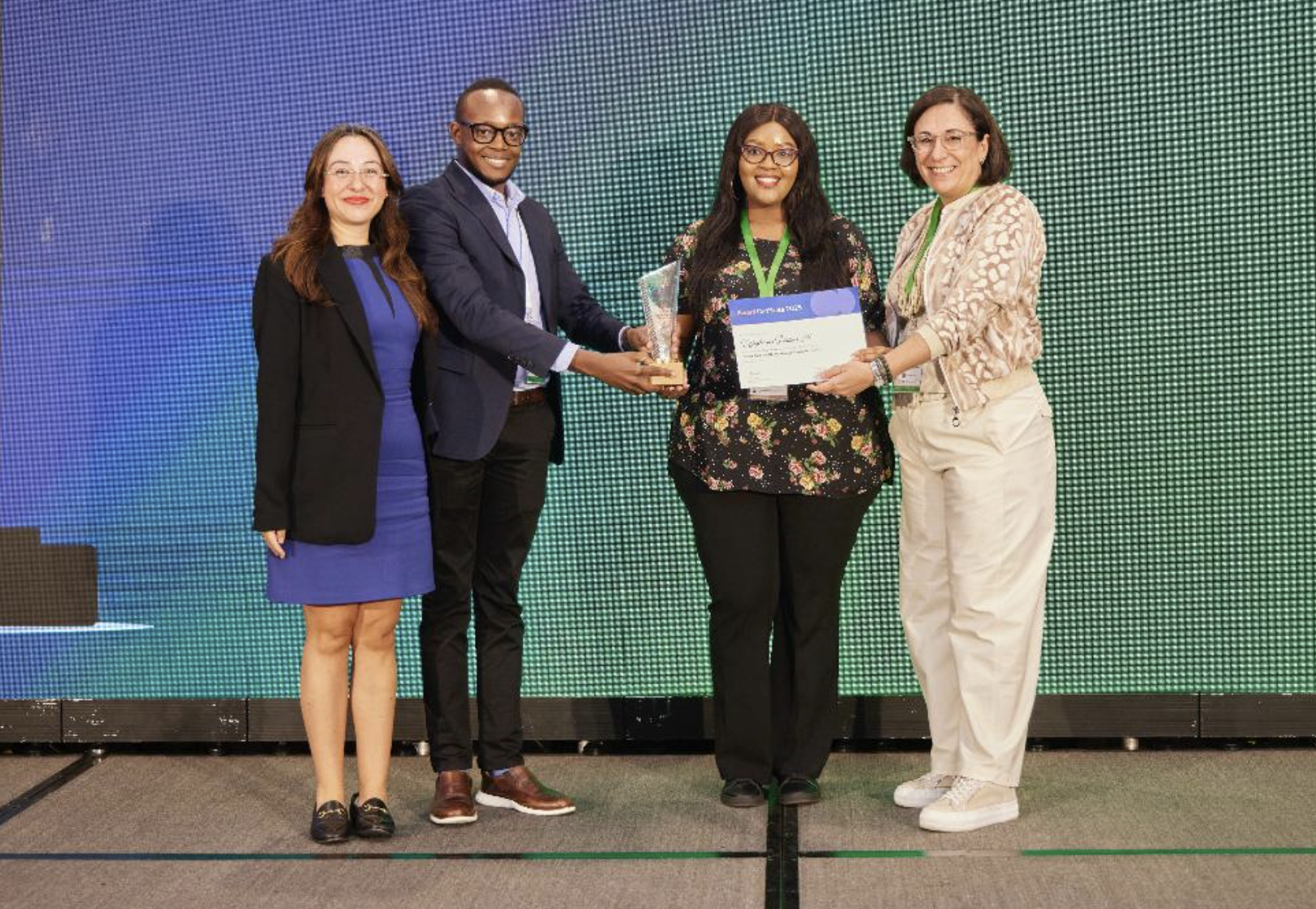 Esther Van de Voort, innovation and partnership director at Yara Africa and Asia; Brian Bosire, CEO of UjuziKilimo Solutions; Eunice Nderitu, marketing and communications lead at Ujuzikilimo Solutions and Marisa Rebelo, senior vice president for innovation and impact, Yara Africa and Asia. This was during Data for soil health summit held in Nairobi, June 3-4, 2025.
Esther Van de Voort, innovation and partnership director at Yara Africa and Asia; Brian Bosire, CEO of UjuziKilimo Solutions; Eunice Nderitu, marketing and communications lead at Ujuzikilimo Solutions and Marisa Rebelo, senior vice president for innovation and impact, Yara Africa and Asia. This was during Data for soil health summit held in Nairobi, June 3-4, 2025.Across the country, agri-tech startups are stepping in with tools that bring science and data into the shamba. One of them is UjuziKilimo, a local company developing soil-testing devices and digital platforms to help farmers make better decisions.
The firm was recently selected for the Thryve Accelerator Program, backed by Yara Africa & Asia. The programme was announced during the World Bank’s Data4SoilHealth Summit in Nairobi and aims to scale data-driven solutions that restore soil health and support climate-smart agriculture.
The roots of UjuziKilimo trace back to western Kenya, where co-founder Brian Bosire grew up in a smallholder farming family. Like many rural households, they struggled with low yields, poor soils, and unpredictable weather.
“Without knowing the soil, you can’t unlock the farm’s full potential,” Bosire says.
Together with a small team trained in engineering and technology, he set out to build tools that connect farmers to agricultural intelligence. Their first product was SoilPal, a handheld sensor linked to a smartphone that delivers instant soil analysis. Within minutes, farmers can see nutrient gaps and receive recommendations for their crops.
The company also developed FarmSuite, a platform that combines soil data, weather forecasts, and crop management advice. With these tools, farmers can adjust fertiliser use, plan irrigation, and monitor pest risks more precisely.
“What sets us apart is the ability to combine cutting-edge technology with localised agronomic knowledge,” Bosire says. “Our solutions are rigorous but also practical and relevant to the realities of smallholder farmers.”
For some farmers, the difference has been clear.
David Barngetuny, a farmer from Mariashoni, Nakuru, had long struggled with stagnant yields. After testing his soil with SoilPal, he discovered it was deficient in key nutrients. By changing his fertiliser strategy, he increased his harvests by 30 per cent in one season.
In Kapsinendet, Nakuru, farmer Silvia Ngetich used FarmSuite to optimise planting schedules and reduce pest losses. The changes helped her crops withstand erratic rainfall.
Across different counties, similar stories are emerging. By cutting waste and reducing guesswork, farmers report saving money while improving harvests. For households working on tight margins, these small gains matter.
UjuziKilimo has also tried to tackle youth unemployment through a project called Vijana na SoilPal. The initiative trains young people to offer soil testing services and agri-tech support in rural areas. The company says the programme has created jobs, expanded access to soil information, and unlocked over $15 million in economic value for farmers and communities so far.
Despite the promise, scaling an agri-tech company in Kenya has not been easy. Distribution to rural areas is costly, and many farmers remain cautious about new technologies. Finding pricing models that work for both the business and the farmers has also been a challenge.
“Before joining the accelerator, we faced difficulties expanding to more farmers and refining our business model,” Bosire says. “The mentorship, networks, and strategic support have sharpened our growth trajectory and opened new doors.”
Bosire says UjuziKilimo is now eyeing expansion beyond Kenya, targeting regions in Europe and Asia that also face challenges in climate-resilient farming.
For him, agri-tech is not only about raising yields but also about changing perceptions of farming.
“Each technological intervention is a calculated risk,” he says. “But the potential rewards for farmers, communities, and the planet far outweigh the costs.”
The company has set a target of empowering one million farmers with data-driven agriculture within the next five years. Achieving that will require partnerships with industry players, governments, and development agencies.
“We see the future of African agriculture as collaborative, inclusive, and innovation-led. With the right partners, we can ensure farmers are not just surviving but thriving,” Bosire says.











